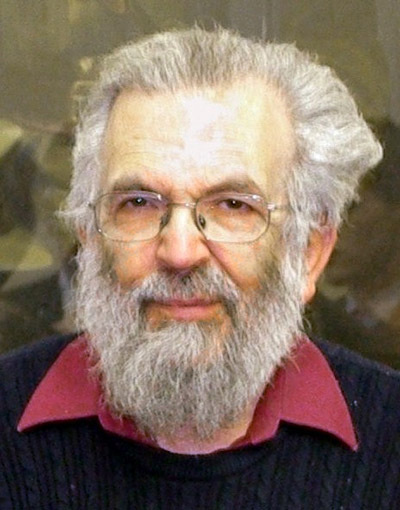- Winter 2022
- In Memoriam: Professor Joseph Raz (1939-2022)

Professor Joseph Raz was one of the influential legal positivist of the 20th century. He died at Charing Cross Hospital in London on the 2nd May 2022, aged 83 years. Raz was one of a handful of internationally recognised legal philosophers whose insights and thoughts enhanced the theoretical understanding of law. Those others were Hans Kelsen (1881- 1973), H.L.A. Hart (1907-1992) and Ronald Dworkin (1931-2013), and not to mention the Australian legal philosopher the late the Honourable David Hargraves Hodgson AO QC (1939-2012). Raz’s academic specialty was always that of philosophy of the law, often venturing into the sphere of practical reason. Raz was born in Haifa in Mandatory Palestine in 1939. He attended the Hebrew University Jerusalem where he studied law. It was there where he learned of the great legal positivist H.L.A. Hart. Raz received one of Hart’s papers and analysed it thoroughly, notifying Hart of an error. Hart was so impressed by Raz’s identification that he replied to him, commencing their lifelong contact. Shortly after Raz’s graduation he went up to Balliol College, Oxford where he was supervised by Hart himself. He completed the DPhil and became a fellow at Balliol in 1972. There he remained in one academic position or another, with the title of Professor for some forty years. He completely retired from academic life at Oxford in 2009, although Raz’s academic contributions continued in retirement. He taught at Columbia Law School in New York from 2002-2019 and at King’s College London from time to time until he died. Raz’s peripatetic tendencies took him all over the world. He visited UCLA Berkeley Law School, the Australian National University, the University of Toronto and also Yale. Raz demonstrated his academic prowess and deep-thinking at each of these institutions. He was regarded as a doyen of legal philosophy and was much loved in academia and especially by his students and younger academics whom he would mentor and nurture. It is true to say that Raz, once in contact, never lost a connection if he sensed genuine curiosity.
The rigour of his intellectual analysis was as intimidating as it was profound, placing him among the foremost legal minds of his time. He had a quizzical, soft and trailing voice with which he expressed himself, however none of his students interrupted him as that same voice belied academic insights of the highest calibre. Analytical philosophy is sometimes likened to a cult, and therefore adherence usually hangs on the words of their exponent. Raz was self-effacing but highly charismatic yet he never ventured into pomposity.
Raz’s influence is immediately discernible in the two or three generations of analytic legal philosophers alive today. In that coterie of philosophers, internationally, there is hardly a person who did not cherish his friendship and mentoring. He often exceeded his formal share of graduate student supervision and he never forgot a legitimate enquiring student who approached him in earnest. As teacher, Raz built communities among his students arguments about what the law is and whether positivism is true. Raz enthusiastically engaged in such debates but was also interested in the conclusion to this argument and what the analysis all amounted to. As Raz thought, it was no more than an attempt to understand ourselves since law is a distinct influence in our social environment.

Raz traced his academic lineage to H.L.A. Hart and became a proponent of the liberal tradition of John Stuart Mill and John Rawls. Raz’s seminal works include The Concept of a Legal System (1970), Practical Reason and Norms (1975), and The Authority of Law (1979). In 1994 he would directly continue the academic legacy of H.L.A. Hart, editing the 2nd edition of Hart’s 1961 book The Concept of Law. That edition included the famous postscript in which Hart defended his approach to jurisprudence against Ronald Dworkin. The postscript was not complete at Hart’s death, but editors helped complete it from notes left by Hart.
Herbert Hart was the 20th century legal positivist. Hart did not believe that lawyers or judges were required to engage in moral thinking to find out or uncover what the law was, or indeed how to apply it. Raz was also a devotee of this notion but refined this position with a number of subtleties. Raz maintained that the law was a matter of social facts and a social construct itself in relation to the exercise of power. Raz thought it was perfectly consistent to say that the question of law is a morally significant question. The significance of his writing and musings on the rule of law were what earned Raz the Tang Prize for the Rule of Law in 2018 – at the time the most prestigious in the field.
In analytic philosophy there are endless coterie of philosophers, internationally, there is hardly a person who did not cherish his friendship and mentoring. He often exceeded his formal share of graduate student supervision and he never forgot a legitimate enquiring student who approached him in earnest. As teacher, Raz built communities among his students. was worth respecting only in a life dedicated to the pursuit of what really mattered. During the 1980s this was known as ‘liberal perfectionism’ and whose proponents included Sir Neil MacCormick QC.
One of Raz’s greatest accomplishments was The Morality of Freedom published in 1986. The first part of this book was devoted to his analysis of authority, however, this mostly expounded upon personal autonomy. This is a lovely juxtaposition as authority is usually thought of as a problem for autonomy and vice versa. However, Raz explained it otherwise such that he did justice to both concepts and explained how they might work together in the context of practical reasoning.
Raz was a critic of Dworkin and the idea of liberal neutrality about values and about the definition of the ‘good life’. Raz thought that autonomy – self-authorship of foremost figures in modern legal philosophy and the last and most in the two or three generations of analytic legal philosophers alive today. In that a personal life – was worth nurturing only in the service of genuine values and that it was worth respecting only in a life dedicated to the pursuit of what really mattered. During the 1980s this was known as ‘liberal perfectionism’ and whose proponents included Sir Neil MacCormick QC.
Raz’s last collection of essays was entitled The Roots of Normativity (2022) published not six months ago. Raz was a ferocious thinker and was completely devoted to that intellectual activity. Raz never relented in his commitment to intellectualism and his continued output earned him the respect of his peers.
Raz’s legacy is complicated. It draws upon jurisprudence, political philosophy, ethics and practical reasoning. It is an impressive and substantial legacy of high intellectual engagement in the field of legal philosophy. A cursory exploration of the roots of normativity prove this fact, especially when Raz considers what matters in life. Raz said that ‘wellbeing consists in a wholehearted and successful pursuit of valuable relationships and goals’. Most legal philosophers will hear the echoes of G.E. Moore’s Principia Ethica, an antique volume published in 1903.
Raz will be remembered as a gentle giant and was never fussy or unworldly. He was grounded in a vast array of friendships and collegiality and was too much embraced by his family to be anything other than a great philosopher and observer of humanity. Raz is survived by his son Noam who is an architect in Sydney Australia, and his long-time companion Penelope Bulloch. He leaves a vibrant intellectual community that he successfully nourished and sustained for some sixty years.
By Kevin Tang
